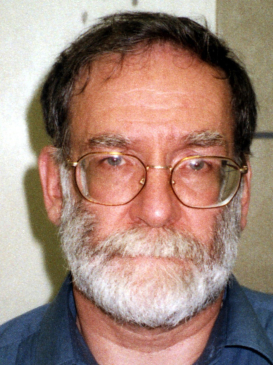Harold Shipman
Harold Frederick Shipman (14 January 1946 – 13 January 2004) was an English general practitioner and one of the most prolific serial killers in recorded history. He was known to have murdered at least 215 of his patients, although the total number is believed to be higher.
Early Life[edit | edit source]
Harold Shipman was born in Nottingham, England, and was the second of three children. He was raised in a working-class family and showed early academic promise. Shipman attended the Leeds School of Medicine and graduated in 1970.
Medical Career[edit | edit source]
Shipman began his medical career at Pontefract General Infirmary in West Yorkshire. He later became a general practitioner at the Donneybrook Medical Centre in Hyde, Greater Manchester. Shipman was well-regarded by his patients and colleagues, which allowed him to carry out his crimes undetected for many years.
Murders[edit | edit source]
Shipman's method of killing involved administering lethal doses of diamorphine to his patients. He would then falsify medical records to indicate that the patients had been in poor health. The majority of his victims were elderly women, although he did murder men and younger women as well.
Investigation and Arrest[edit | edit source]
Suspicion about Shipman began to arise in 1998 when a local undertaker noticed a high number of cremation certificates for Shipman's patients. This led to an investigation by the Greater Manchester Police. Shipman was arrested in September 1998 and charged with the murder of 15 patients.
Trial and Conviction[edit | edit source]
Shipman's trial began in October 1999 at Preston Crown Court. He was found guilty on 31 January 2000 and was sentenced to life imprisonment with the recommendation that he never be released. Shipman was incarcerated at HM Prison Wakefield.
Death[edit | edit source]
Harold Shipman was found dead in his cell on 13 January 2004, having hanged himself. His death sparked a debate about the monitoring of prisoners and the adequacy of the prison system.
Legacy[edit | edit source]
The case of Harold Shipman led to significant changes in the practices of general practitioners in the UK, including the monitoring of controlled substances and the certification of deaths. The Shipman Inquiry, a two-year investigation led by Dame Janet Smith, resulted in numerous recommendations to improve patient safety and prevent similar occurrences in the future.
See Also[edit | edit source]
References[edit | edit source]
External Links[edit | edit source]
Search WikiMD
Ad.Tired of being Overweight? Try W8MD's physician weight loss program.
Semaglutide (Ozempic / Wegovy and Tirzepatide (Mounjaro / Zepbound) available.
Advertise on WikiMD
|
WikiMD's Wellness Encyclopedia |
| Let Food Be Thy Medicine Medicine Thy Food - Hippocrates |
Translate this page: - East Asian
中文,
日本,
한국어,
South Asian
हिन्दी,
தமிழ்,
తెలుగు,
Urdu,
ಕನ್ನಡ,
Southeast Asian
Indonesian,
Vietnamese,
Thai,
မြန်မာဘာသာ,
বাংলা
European
español,
Deutsch,
français,
Greek,
português do Brasil,
polski,
română,
русский,
Nederlands,
norsk,
svenska,
suomi,
Italian
Middle Eastern & African
عربى,
Turkish,
Persian,
Hebrew,
Afrikaans,
isiZulu,
Kiswahili,
Other
Bulgarian,
Hungarian,
Czech,
Swedish,
മലയാളം,
मराठी,
ਪੰਜਾਬੀ,
ગુજરાતી,
Portuguese,
Ukrainian
Medical Disclaimer: WikiMD is not a substitute for professional medical advice. The information on WikiMD is provided as an information resource only, may be incorrect, outdated or misleading, and is not to be used or relied on for any diagnostic or treatment purposes. Please consult your health care provider before making any healthcare decisions or for guidance about a specific medical condition. WikiMD expressly disclaims responsibility, and shall have no liability, for any damages, loss, injury, or liability whatsoever suffered as a result of your reliance on the information contained in this site. By visiting this site you agree to the foregoing terms and conditions, which may from time to time be changed or supplemented by WikiMD. If you do not agree to the foregoing terms and conditions, you should not enter or use this site. See full disclaimer.
Credits:Most images are courtesy of Wikimedia commons, and templates, categories Wikipedia, licensed under CC BY SA or similar.
Contributors: Prab R. Tumpati, MD


